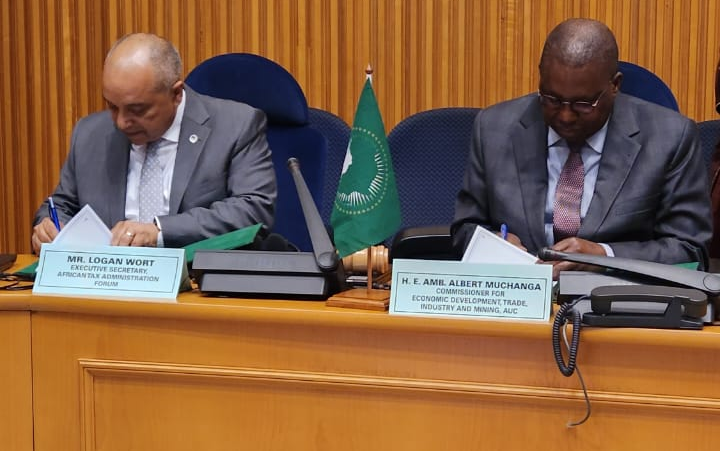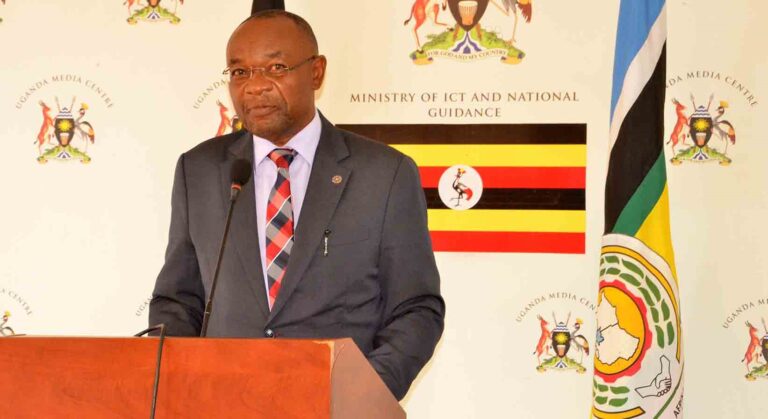
In a collaborative effort to tackle tax-related challenges and promote effective revenue systems in Africa, the African Union Commission (AUC) and the African Tax Administration Forum (ATAF) have formalized their partnership through the signing of a Memorandum of Understanding (MoU). The signing ceremony, held at the AU Headquarters in Addis Ababa during the 2nd Meeting of the Specialized Technical Committee on Finance, Monetary Affairs, Economic Planning and Integration Subcommittee on Tax, marked a significant milestone in advancing tax policy and administration on the continent.
The MoU, signed by Ambassador Albert Muchanga, Commissioner for Economic Development, Trade, Industry, Mining at the African Union Commission, and Mr. Logan Wort, the Executive Secretary of ATAF, solidifies their joint commitment to mobilize domestic resources in Africa and achieve the goals outlined in Agenda 2063, a strategic framework for the socioeconomic transformation of the continent.
One of the key objectives of the partnership is to combat illicit financial flows (IFFs) and ensure effective revenue collection. By coordinating their efforts, the AUC and ATAF aim to tackle tax evasion and other illicit practices that undermine economic growth and development. The organizations will also actively contribute to global discussions on tax matters, ensuring that the African voice is heard and taken into account.
To facilitate closer collaboration, the ATAF Desk will be established at the African Union Commission, serving as a hub for promoting effective revenue systems and facilitating cooperation between the AUC and ATAF. This dedicated desk, housed in the Commission for Economic Development, Trade, Industry, and Mining, will provide a centralized platform for joint initiatives.
Mr. Logan Wort, the Executive Secretary of ATAF, expressed his enthusiasm about the extended partnership, emphasizing the significance of bringing tax issues to a political level and finding practical solutions tailored to African countries. He stated, “I am delighted that we will be in a position to continue the work of combating IFFs, increasing revenue collection for achieving Agenda 2063, and building effective revenue systems across the continent.”
Ambassador Albert Muchanga echoed Wort’s sentiments, emphasizing the importance of coordinated efforts to realize the objectives of revenue mobilization in Africa. With the signing of the MoU, the AUC and ATAF have laid the groundwork for a more united front in addressing tax-related challenges.
Recognizing the importance of staying informed on global tax discussions, ATAF and the AUC are planning to convene a meeting to update Member States on the progress of the UN Tax Convention and the upcoming OECD Inclusive Framework Meeting in July 2023. This proactive approach ensures that African nations have a voice in shaping international tax cooperation frameworks.
The ATAF delegation is currently participating in a series of sessions during the three-day meeting of experts from Ministries of Finance and tax administrations under the Specialized Technical Committee on Monetary Affairs, Finance, Planning, and Integration of the African Union. These sessions offer African experts a platform to contribute their insights on crucial issues such as domestic minimum top-up tax, cross-border VAT and e-commerce, and the United Nations Resolution on a Convention for International Tax Cooperation.
The African Union Commission and the African Tax Administration Forum have taken a significant step towards improving tax administration and policy across Africa by extending their cooperation and signing the MoU. This strengthened partnership will play a vital role in mobilizing domestic resources, combating illicit financial flows, and bringing the African perspective to global tax discussions, ultimately fostering economic growth and development on the continent.
Despite the challenges faced by many African countries in collecting an adequate amount of tax revenue to support needed investments in public services, evidence from benchmarking evaluations organized by the International Monetary Fund




